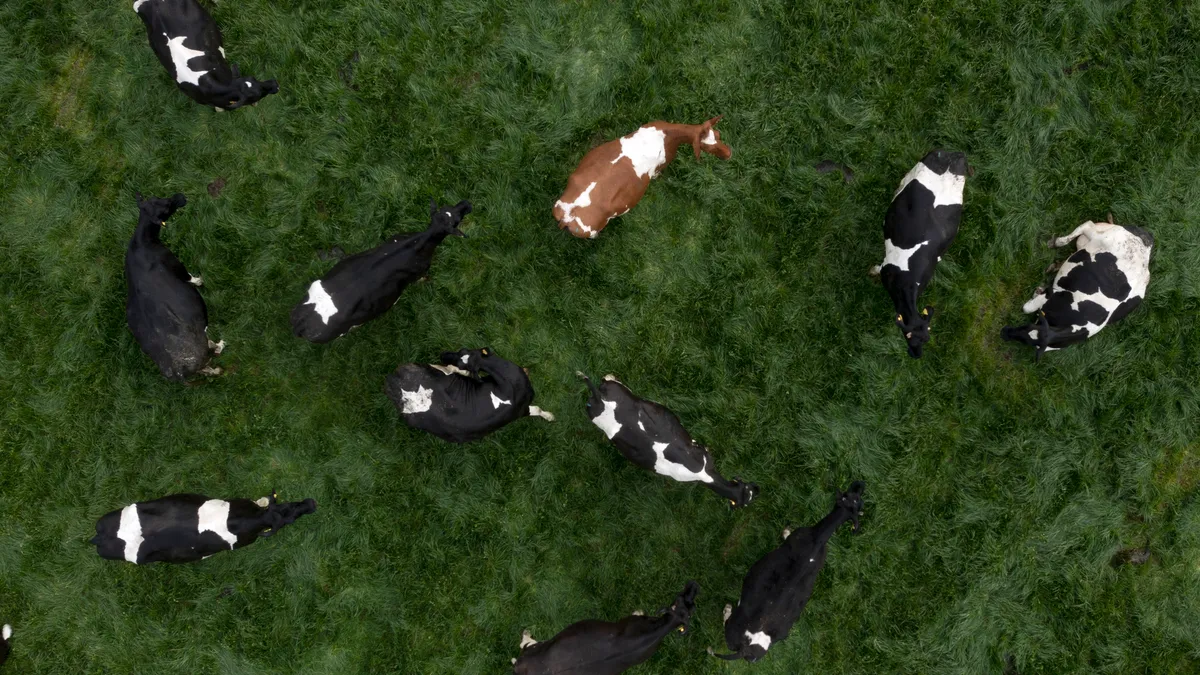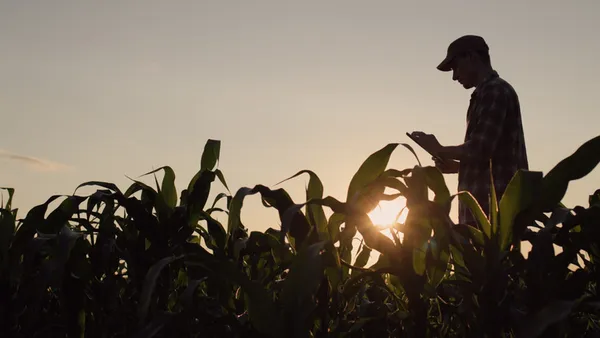The U.S. Department of Agriculture unveiled a voluntary bird flu surveillance program for dairy farmers as the federal government separately announced an additional $824 million in emergency funding to contain the virus' spread.
The pilot program, which the USDA announced on Thursday, will help expand the department's understanding of avian influenza. It requires participating producers to test on-farm bulk tank milk samples at a National Animal Health Laboratory Network facility.
Farms can be exempt from certain pre-testing animal shipment requirements if their herds test negative for three weeks in a row. After that, producers must comply with continued regular weekly monitoring and herd testing.
"Once they can demonstrate their herds are free of H5N1 …. [participating farmers] will be able to ship their cows at the time they prefer and without testing individual animals," the USDA said in a release.
The USDA said the pilot program could set the stage for state or regional disease-free statuses making it easier to comply with interstate livestock testing and movement requirements.
The department's Animal and Plant Health Inspection Service is identifying states to participate in the pilot program. Eligible producers can enroll the week of June 3.
The program comes as the USDA invests another $824 million to fund rapid response activities, including work to develop bird flu vaccines for cattle, turkeys, pigs and goats. The department is earmarking close to $100 million to incentivize farms to provide personal protective equipment, test animals and take other biosecurity measures.
Bird flu has been found in 67 dairy herds across nine U.S. states since late March. Three dairy farmworkers have also contracted the virus, though health officials say the risk to the public and food supply remains low.











